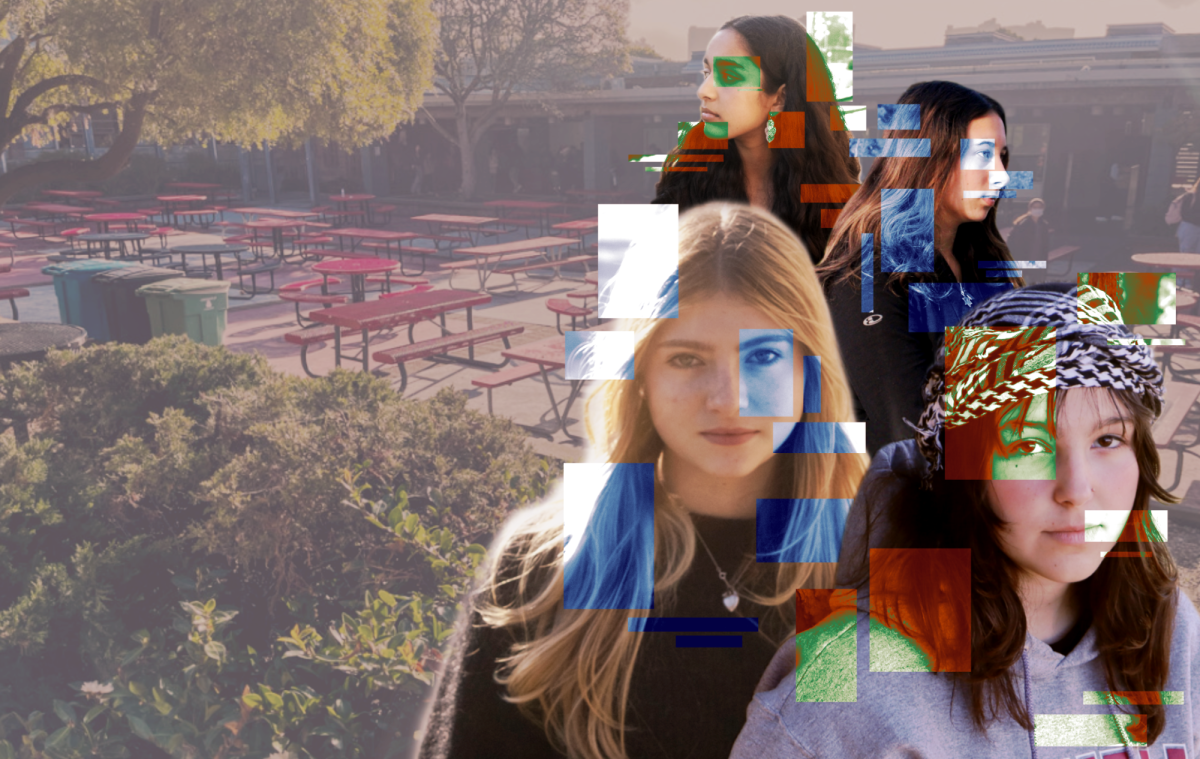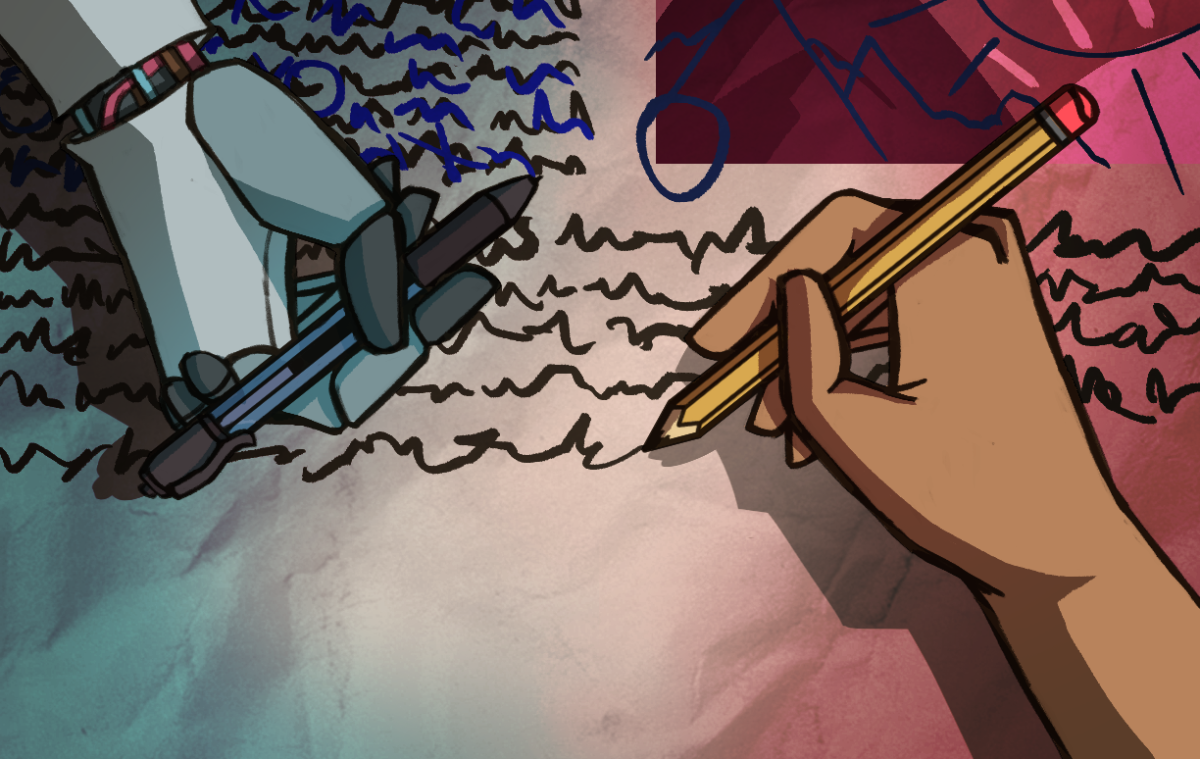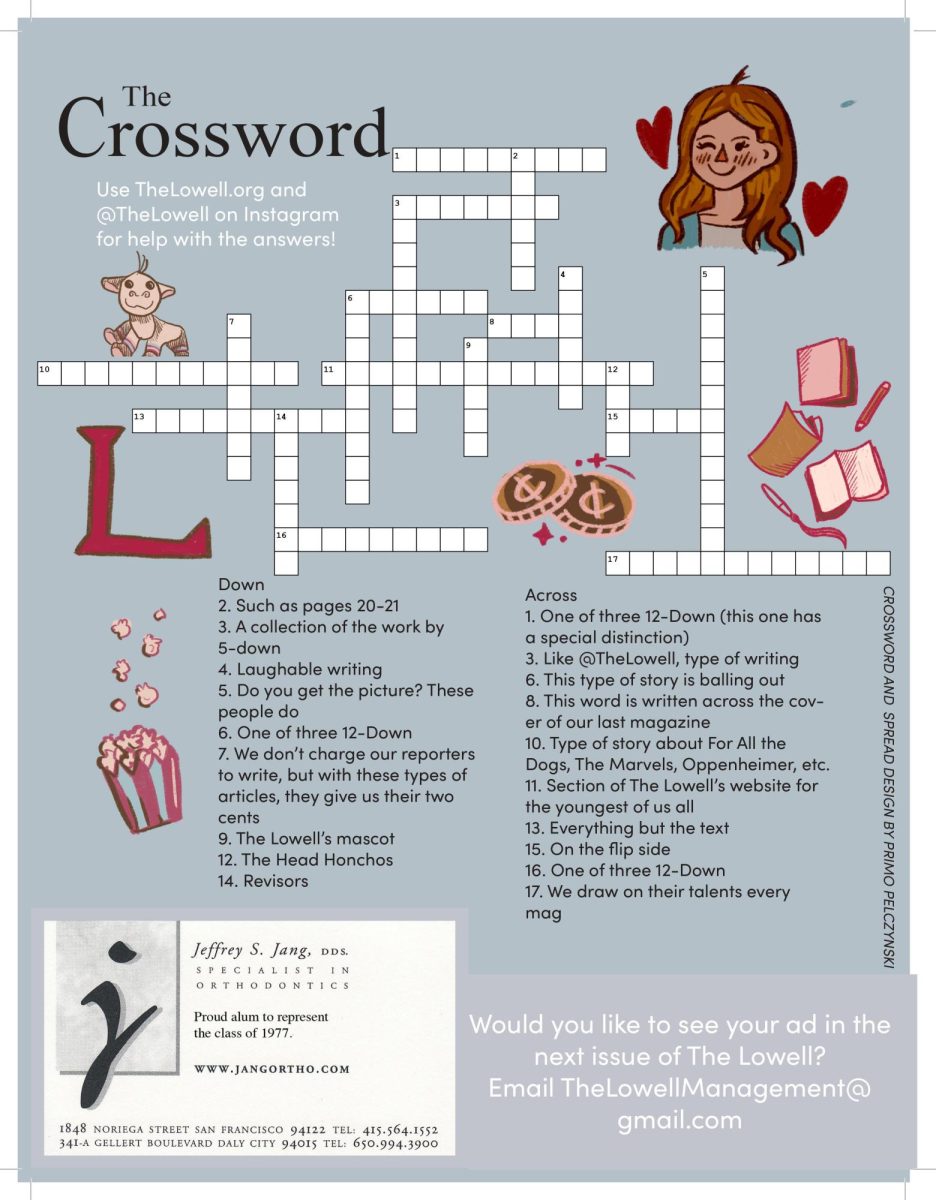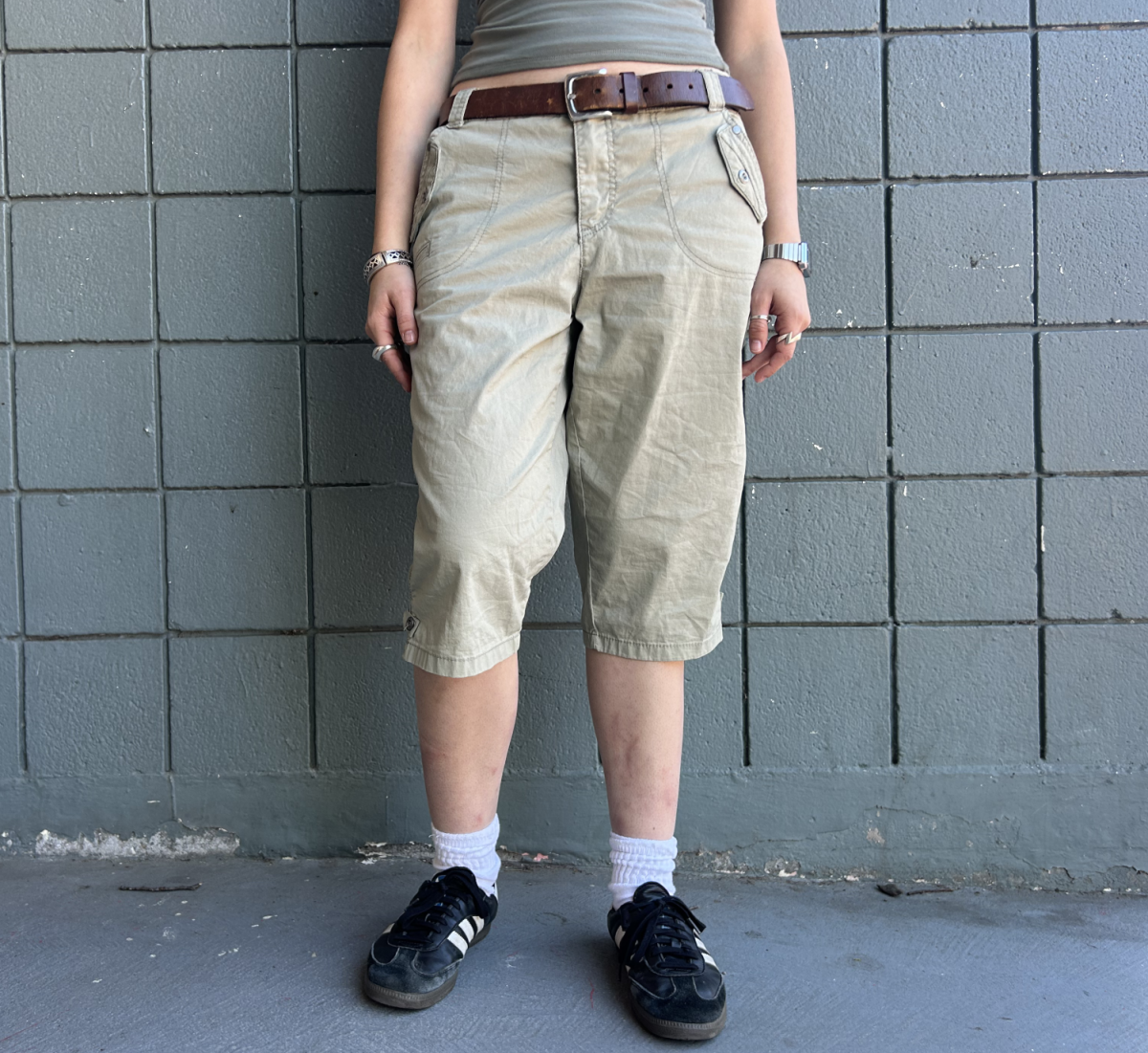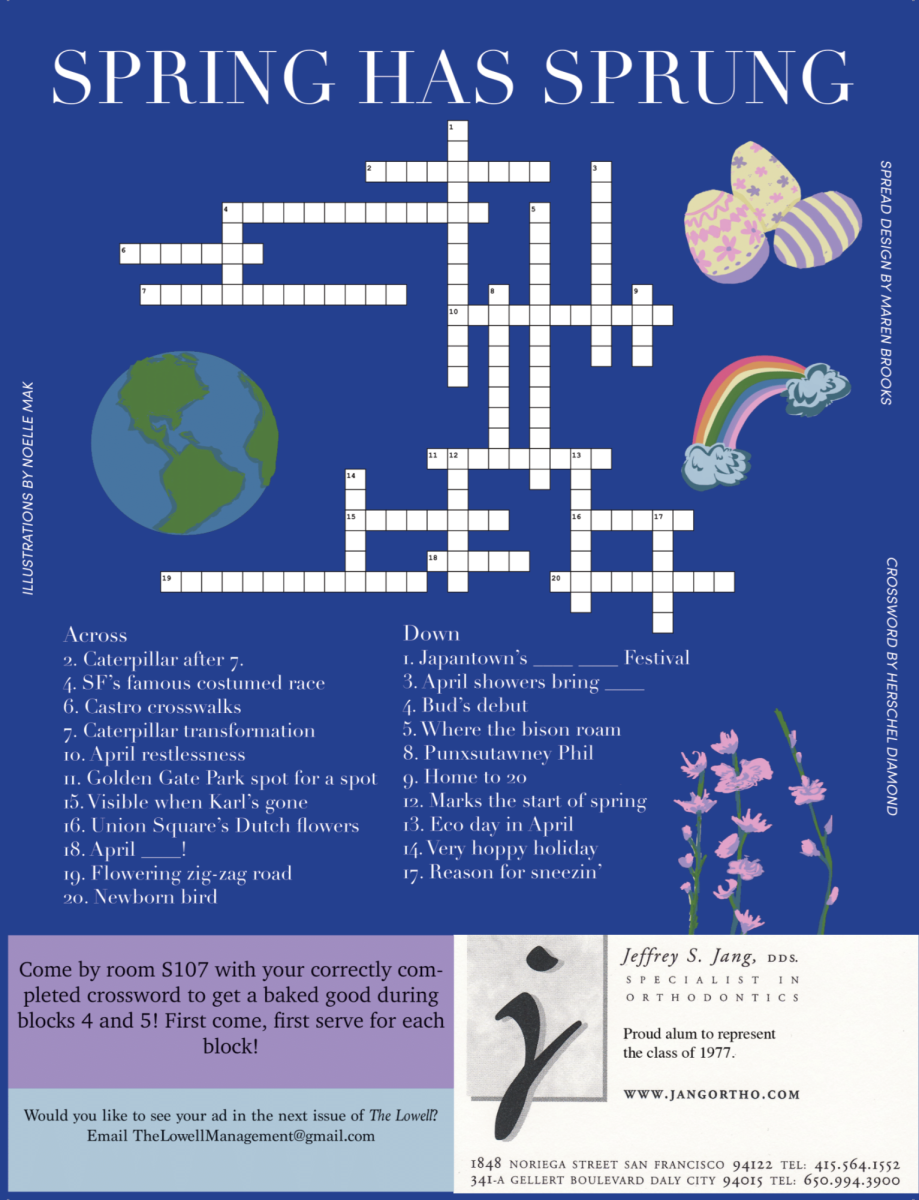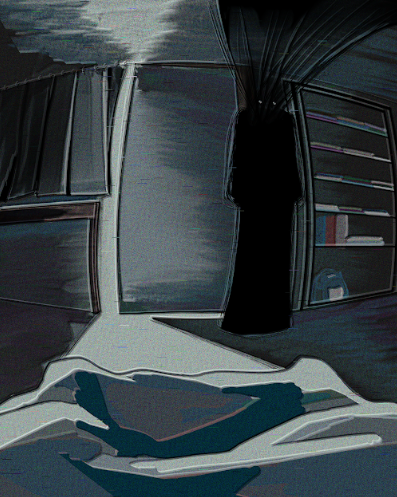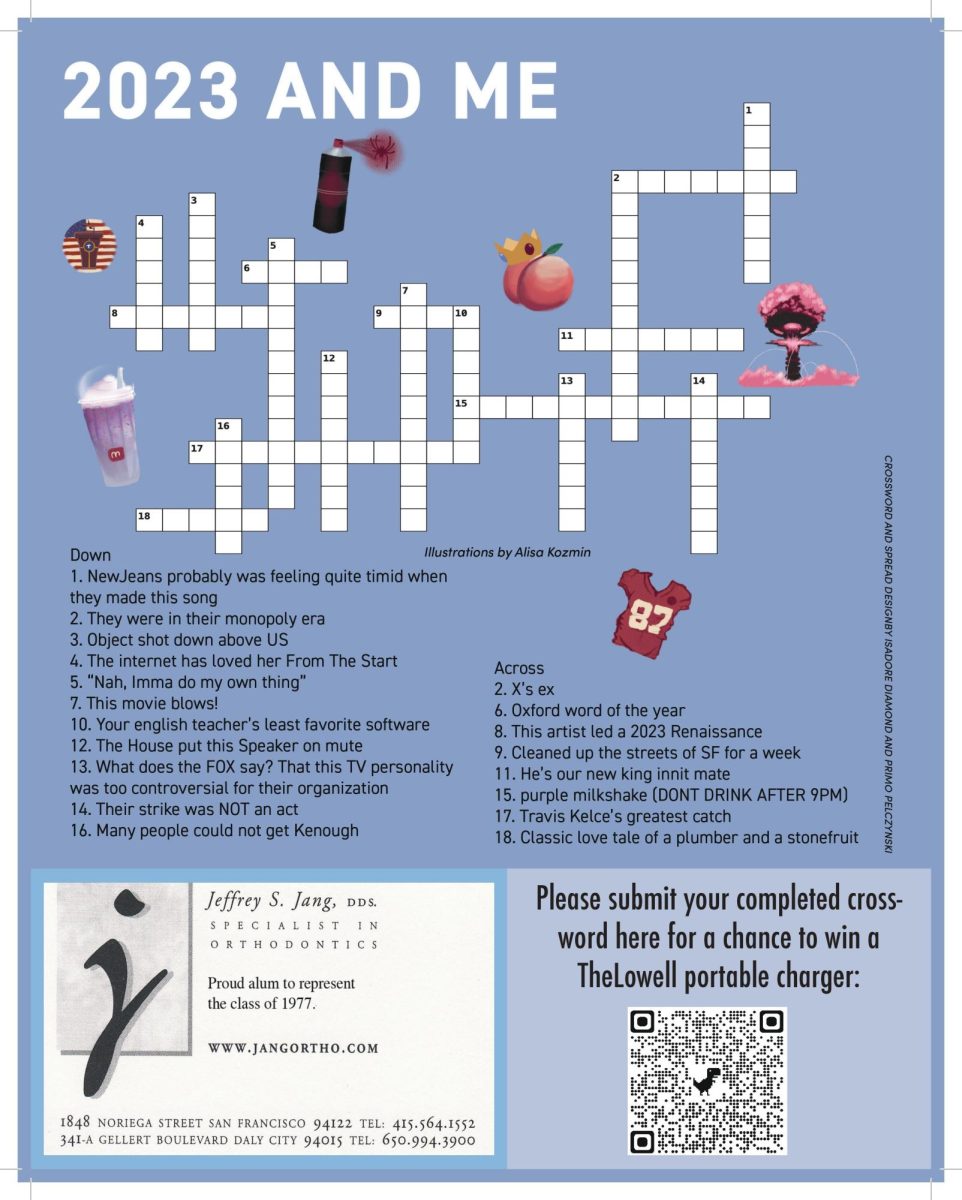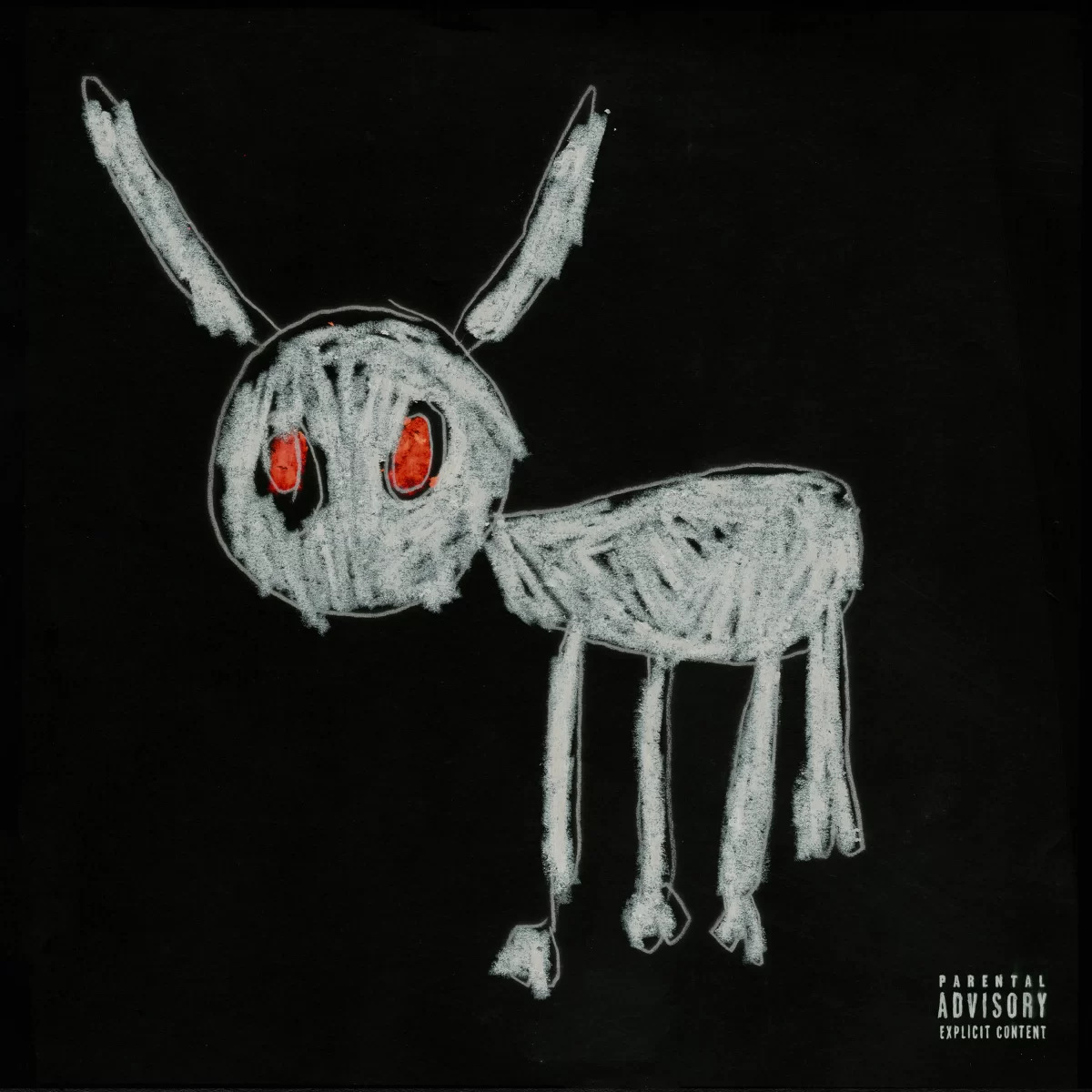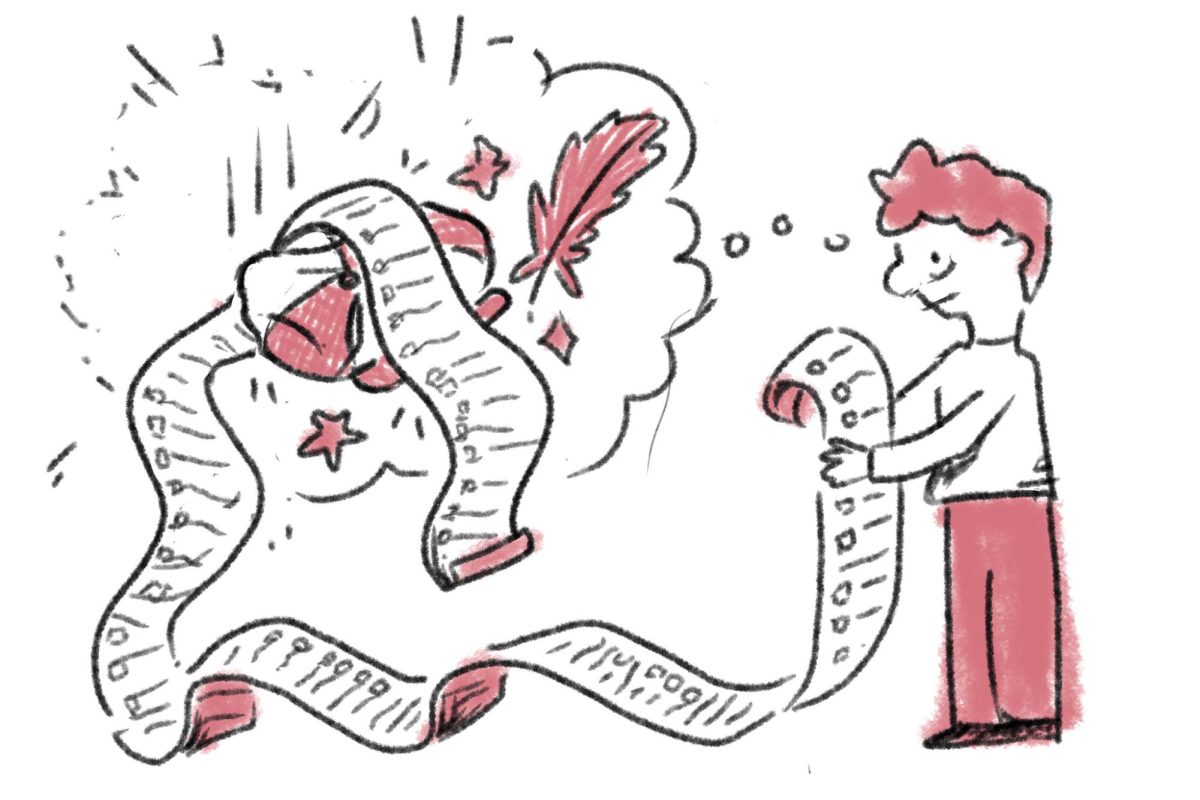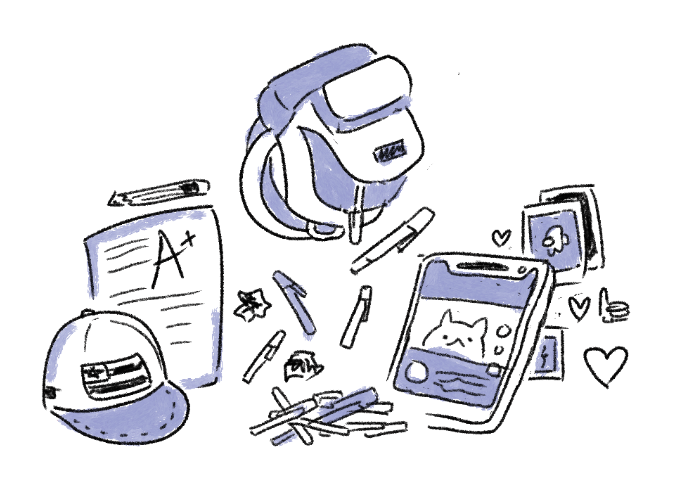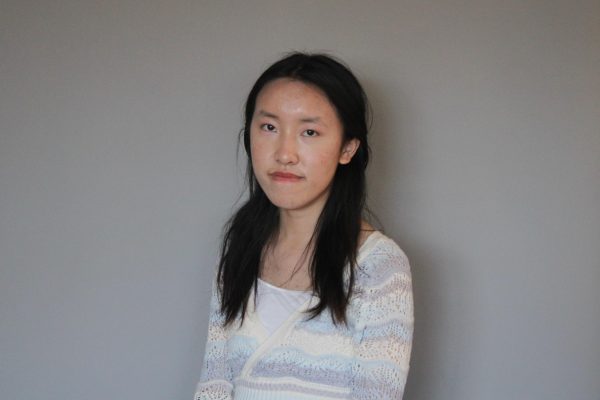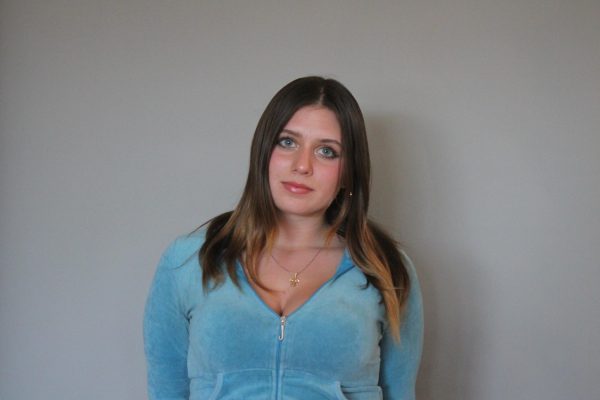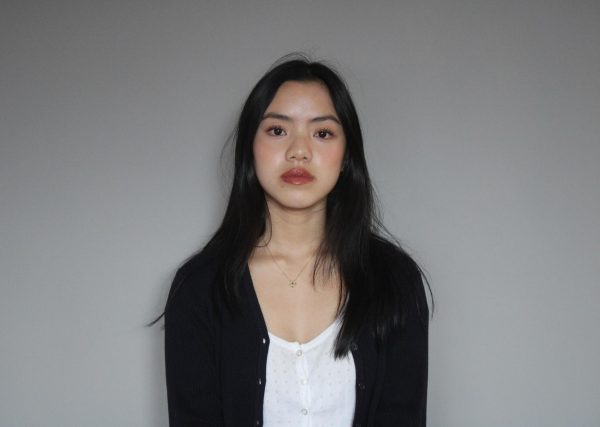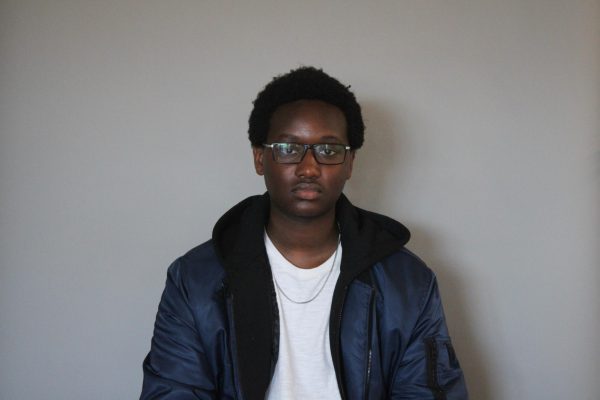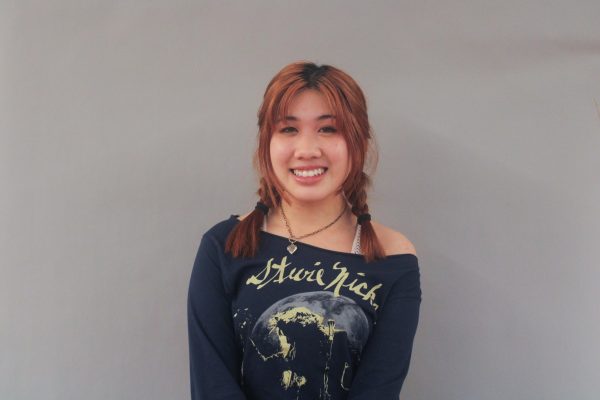On October 7, 2023, an attack on Israel launched by Hamas, a Palestinian militant group, intensified the nearly century-long strife between Palestine and Israel. In response, Israel initiated attacks targeting the Gaza Strip of Palestine. This conflict has generated a wave of emotional turmoil, societal divisions, and personal struggles among students within Lowell. Both Jewish and Palestinian students grapple with the conflict’s impact on their academic focus, mental well-being, and social interactions within the school community. We spoke with students Helena-Renee Awwad, Amaya Tawasha Diwan, Maren Boigon, and Tess Wissotzky, who shared their individual experiences on how the Palestine-Israel conflict has affected their lives.
Helena-Renee Awwad

As junior Helena-Renee Awwad gathered with her family to celebrate her cousin’s college graduation, the television screen suddenly interrupted the lively atmosphere at the dinner table, displaying the first series of attacks by Hamas on Israel. The announcement of war gripped Awwad’s sinking heart, as she became consumed by panic, disbelief, and devastation amidst her family’s shared shock.
Awwad is of Palestinian descent through her father’s roots in Ramallah, a city located in the West Bank of Palestine. Her immigrant family has endured numerous wars in Palestine. The ongoing conflict, affecting her family members and friends, has taken a toll on her well-being and daily routine. “I don’t really go to school as much anymore because I find it really difficult to just get out of bed,” Awwad said. She describes dealing with an “extreme increase of depression and anxiety.” Her struggle to cope has disrupted her ability to focus on academics and perform essential self-care tasks, leading to serious health repercussions, including blackouts due to a loss of food intake.
Channeling distress into activism, Awwad’s participation in protests has drawn a surge of online harassment and threatening comments, adding another layer of distress. Countless comments are directed at herself and her peers daily: “You’re a terrorist. You’re barbaric. You’re a human animal. You’re part of the next generation of jihad terrorists,” Awwad said. Threats and comments also came from Lowell alumni. One alum threatened to implicit harm to Arab students. “If I ever see you on campus or in public, you guys (Arab students) would have to run and hide,’” Awwad restated their words. The sheer volume of such comments led Awwad to temporarily delete social media apps to shield herself from the toxicity, disheartened by prejudiced remarks within her school community and online.“Having people online so openly saying such racist and harmful comments has destroyed my mental health and personal image,” Awwad said.
Awwad, plagued by rising Islamophobic attacks on Arab people, feels unsafe. “I get scared just going out sometimes. When I go out wearing anything like my keffiyeh, I feel like I’m in danger all the time,” Awwad said. The constant prejudiced views have made attending school a daunting experience. “I don’t know who’s viewing me as a terrorist and who’s not viewing me as a terrorist just because I’m Arab,” Awwad said.
Tess Wissotzky

Junior Tess Wissotzky greeted her friend’s mom but was met with a concerned expression. “Is your dad okay?” the mom asked. Wissotzky knew that her dad was visiting Israel, where he was born and raised, but did not know why that was suddenly concerning. When Wissotzky returned home that night, her mom explained that Hamas had attacked Israel, and it was unclear if and when her dad would be able to return home.
According to Wissotzky, her dad was eventually able to leave Israel but has been filled with guilt ever since his return to the U.S. He is in the IDF (Israel Defence Forces) and feels a responsibility to stay during the conflict, but at the same time is worried about his safety. Furthermore, many other IDF soldiers did not receive the same opportunity he did to leave Israel and are stuck there, unable to get out. Every day when Wissotzky gets home, she finds her dad watching the Israeli news, desperately trying to keep up with everything happening. “He’s very shaken up about the whole thing,” Wissotzky said.
Much of Wissotzky’s family is still in Israel. According to her, her grandfather got his hip replaced after Hamas’ attack on Oct. 7, while his partner was out of the country. Because the conflict has made getting in and out of Israel difficult, he had to endure the recovery process alone without his partner’s support. Wissotzky’s uncle lives farther north, making him vulnerable to a potential invasion if the North gets attacked. Wissotzky’s 13-year-old cousin has been out of school. “They’re obviously scared,” Wissotzky said. “I mean, civilians are dying.”
Although the conflict has not impacted Wissotzky as much as it has her family, she is aware of the anti-Semitic views that have surfaced during it. “All I can think of is frustration and sadness as people are using this as an excuse to mask their antisemitism,” Wissotzky said. She came across a post on Instagram that was being reposted by Lowell students that said, “Israel breeds hate.” Messages like these trigger a surge of emotions in Wissotzky, who feels frustrated and sad that the conflict has encouraged so much religious discrimination.
Amaya Tawasha Diwan

Freshman Amaya Tawasha Diwan stared at the video playing on her phone, horror bleeding through her body and making her nauseous. The video showed an Israeli rally with people chanting, “Death to the Arabs,” along with other hateful messages. Diwan, who is Palestinian on her mom’s side, questioned what she had done to merit such violent words.
The war in Gaza has had an emotional impact on Diwan, causing anxiety and disrupting her daily routine. Diwan described staying up late at night watching videos of bombings in Gaza. “I’ve kind of fallen down the insomnia rabbit hole,” she said. This instability follows Diwan the next morning into school as well. “I’ve had multiple panic attacks and breakdowns in class,” she said. Furthermore, Diwan has had to drop Mock Trial, an extracurricular she used to love, with the war limiting her ability to manage the same schedule she used to follow. Diwan explained that when she feels overwhelmed by the traumatic information she is receiving, she has a difficult time focusing on anything else. This has also interfered with homework, which Diwan says is impossible to prioritize with everything else going on.
According to Diwan, the Lowell community has been supportive throughout the conflict. “I’m really grateful to my teachers who check in with me,” she said. Aside from her teachers, Diwan frequently leans on her friends and has visited the Wellness Center multiple times. She feels confident that if she ever needs to speak to someone, she will be able to find support at Lowell.
Outside of school, Diwan does everything she can to protest the violence in Gaza. She has attended protests and walkouts calling for a ceasefire. Still, Diwan wishes she could do more. “It makes me really mad to know that I have to sit in class all day and I can’t do anything about [the war],” she said.
Maren Boigon

In the wake of Hamas’s attack and the subsequent war, junior Maren Boigon anticipated widespread support for Israel in school, mirroring her family’s and the synagogue community’s views. But as her friends from school shared social media content that clashed with her beliefs, Boigon felt torn between two conflicting worlds. “I feel like either I’m fighting a battle at home, or I’m fighting a battle at school,” she said.
Hearing stories from her Israeli cousins and former camp counselors in Israel heightened Boigon’s anxiety. “They tell me that you can hear the bombs, the raids, and everything going off in the street,” she said. Learning about her camp counselor’s experience with kidnapped and killed students deeply disturbed her, impacting her academic performance. “It’s caused a lot of anxiety,” she said. “When I came to school after learning about this, I got like a 40 on my test, and I just couldn’t stop thinking about it as hard as I try.”
Amidst the conflict, Boigon feels disconnected from her peers at Lowell. She noticed a lack of voice for Israel’s viewpoint at school, often misunderstood as condoning Palestine atrocities. In a joint meeting involving Lowell Jew Crew, Lowell Middle East North African Club, and Lowell Muslim Student Association, Boigon felt there was a lack of equitable representation. “It felt like a discussion with Lowell MENA [holding] the mic. The people that were raising their hands were affirming what they were saying,” Boigon said.
The sense of being unable to express her perspective has led to increased isolation within the school community. Boigon feels that fellow students don’t understand her perspective on the war. “I can be against genocide and be against human rights violations, and also think that Israel can be a state, while not agreeing with what Netanyahu is doing,” she said. Boigon has faced a fallout with friends who don’t agree with this stance. “One person decided they didn’t want to be friends with me anymore,” Boigon said. Despite attempts to clarify that her views were not rooted in malice or anti-Palestine sentiments, the message didn’t get through. “I felt a bit hurt when [I noticed] all of their friends unfollowed me [on Instagram],” she recalled. This experience has left her feeling uneasy at school. “I feel like I’m always looking over my shoulder because I don’t want people to not like me for something someone else said about me,” she said.


